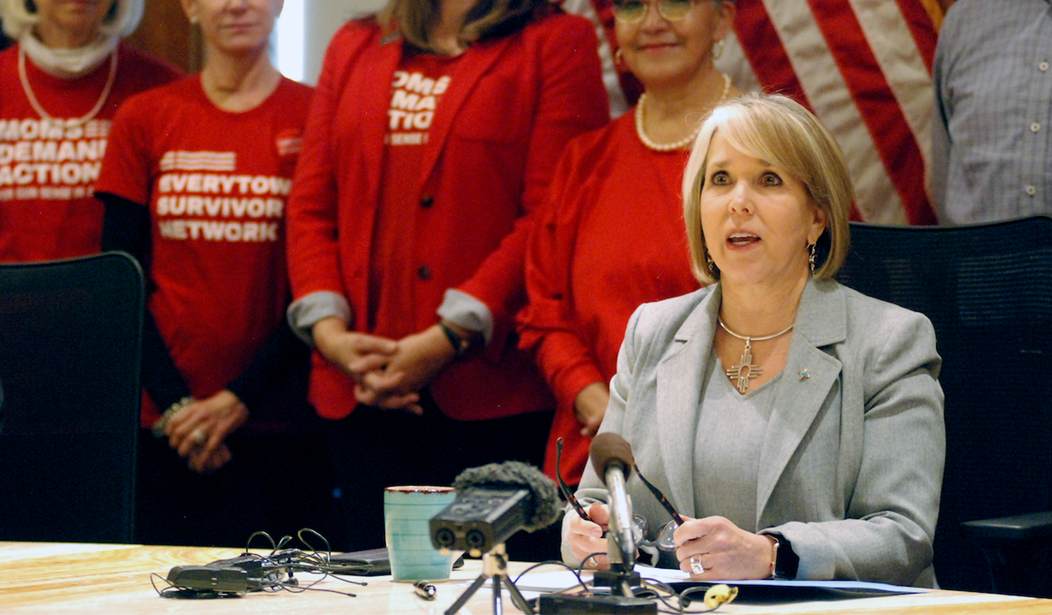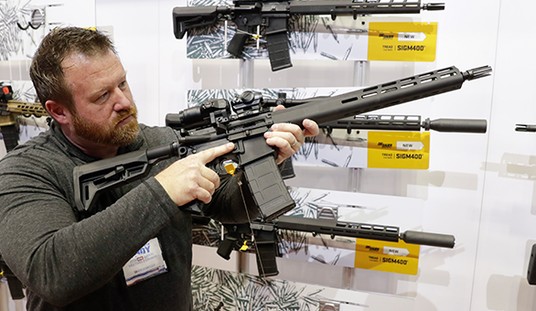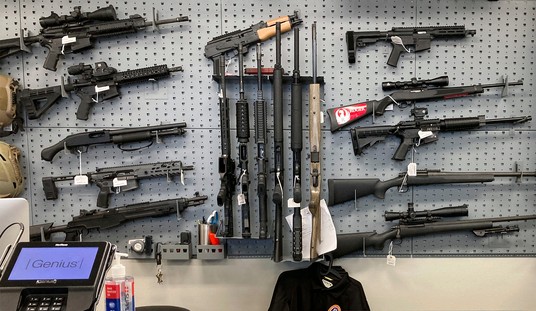Despite (or maybe because of) a number of new gun control laws put in place by the Democrats in control of New Mexico’s state government over the past few years, violent crime in the Land of Enchantment has only increased. Crime is a major concern for many voters, and now Gov. Michelle Lujan Grisham is hoping to woo those voters to her re-election bid by pushing for an increase in the use of the state’s “red flag” law, which was passed with great fanfare but has been little used in the months since. As KRQE-TV reported in April:
According to the New Mexico Administrative Office of the Court, since going into effect last May, four ERPO petitions have been filed. Three of them resulted in the mandatory seizing of firearms for one year. But in one of those three cases, the order was lifted before the year was up. “I expected a low number of uses because it’s a very precise tool that you would only use in an extreme situation. So, I was not surprised by the number four,” Rep. Garratt said.
“Clearly, it’s not working as well as we’d like it to so that’s why we need to revisit,” Rep. Ely said. “It can’t just be four or five times that this would’ve been applicable. What was the problem?”
The numbers haven’t grown much since then. Part of the problem is that many county sheriffs aren’t keen on using the law, because they have philosophical and/or pragmatic concerns with how the law is supposed to work. But even in Democratic bastions like Bernalillo County the law isn’t getting much use, and now Grisham has announced a commission designed to get the petitions flowing through the court system.
Under an executive order signed by the Democratic governor, a seven-member task force led by state Public Safety Secretary Jason Bowie will also be instructed to compile an annual report about use of the law that allows firearms to temporarily be taken away from those deemed a danger to themselves or others.
As of this summer, only nine petitions had been filed statewide for court orders allowing gun seizures, according to data provided by the state Administrative Office of the Courts. And just six of those nine cases resulted in one-year orders being approved.
The Governor’s Office has defended the law, despite its infrequent usage, but a spokeswoman said in June that amendments could be made in order to make it easier for petitions to be filed.
“Extreme risk protection orders are an effective, nationally proven tool to prevent gun violence and protect New Mexicans,” Lujan Grisham said in a Friday statement. “This task force will ensure stakeholders across the state have the information and tools they need to successfully and proactively address threats of gun violence, and prevent harm in New Mexico communities.”
ERPO’s aren’t “proven” effective. In fact, there’s no way to prove their effectiveness. You can point to the fact that a crime wasn’t committed by the subject of a “red flag” order, but that doesn’t mean that it was the ERPO that prevented a crime from happening. It could be that there was simply no criminal intent on the part of the gun owner to begin with. Even studies that have tried to use computer modeling to predict the effectiveness of “red flag” laws at preventing suicides have found that it takes somewhere between 10 and 20 “red flag” orders to prevent one suicide.
The ugly truth that Grisham doesn’t want to admit is that “red flag” laws are used as a relatively cheap and largely ineffective alternative to addressing the real and substantive problems in our mental health system. Under New Mexico’s “red flag” law, if a judge determines that the subject of a petition poses a threat to themselves or others, their guns are taken away but the supposedly dangerous individual is left to their own devices. There’s no mental health treatment offered, no attempt to defuse the dangerousness at the heart of the petition, because the state’s mental health system is already crumbling thanks to staffing shortages and a lack of resources in many rural areas.
Fixing that mess would not only address those few truly dangerous individuals (gun owners and non-gun owners alike) by giving them access to care, but would address those in need of help whose issues might not be quite as acute. Instead, Michell Lujan Grisham is doubling down on the use of ineffective and constitutionally suspect “red flag” laws. Republican gubernatorial candidate Mark Ronchetti has already been running on a pro-2A, tough-on-crime platform, and I hope he hammers Grisham for her gun control-centric approach to crime, public safety, and the critical condition of the state’s mental health system.









Join the conversation as a VIP Member